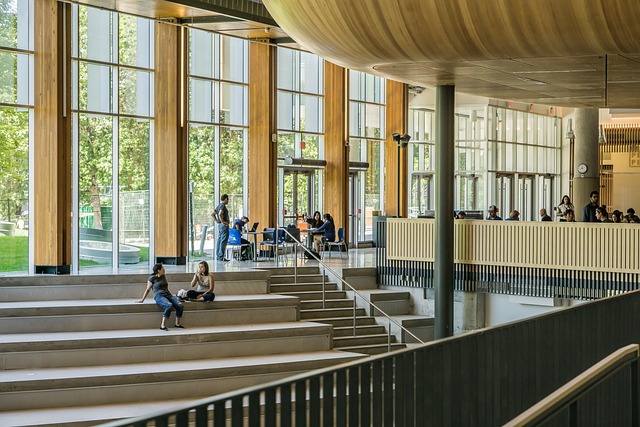Choosing off-campus student housing? Location matters! Prioritize proximity to campus for shorter commutes and easier access to facilities. Also, consider neighborhood safety, nearby amenities like stores and public transport, and budgeting. Inspect property conditions, assess roommate compatibility, and review lease terms. Living close to campus saves time, enhances accessibility, promotes community, and improves academic performance – follow these student housing tips for a richer university experience.
Maximizing the benefits of off-campus student housing is crucial for a fulfilling college experience. This comprehensive guide provides essential tips to navigate this important decision. We explore key aspects, from choosing the right location with optimal accessibility and proximity to campus, to building a supportive community environment that fosters connections.
We delve into maximizing amenities and convenience, ensuring your living space meets your needs without compromising on cost. Furthermore, we emphasize safety and security measures, offering valuable insights for students to feel secure in their new homes.
- Choosing the Right Location for Optimal Accessibility
- – Factors to consider when selecting off-campus housing
- – Proximity to campus and public transportation benefits
- – Impact on commute times and overall student experience
Choosing the Right Location for Optimal Accessibility

When considering off-campus student housing, one of the key factors for maximizing benefits is selecting a location with optimal accessibility. Proximity to campus is essential; a short commute saves time and energy, allowing students to focus on studies and extracurriculars. Choosing accommodation near public transport hubs, such as bus stops or train stations, further enhances accessibility, offering convenience during non-optimal walking conditions or late-night returns.
Student housing tips also suggest evaluating the surrounding area for safety, local amenities, and a sense of community. A neighborhood with reliable security measures, well-lit streets, and nearby stores can significantly contribute to a student’s overall well-being. The presence of cafes, restaurants, and parks adds to the appeal, fostering a vibrant atmosphere that supports both social life and mental health.
– Factors to consider when selecting off-campus housing

When selecting off-campus housing, students should consider several key factors to maximize their living experience. Firstly, location is paramount; proximity to campus ensures shorter commute times and easier access to classes, libraries, and social events. Student housing tips also emphasize the importance of neighborhood safety and amenities like grocery stores, restaurants, and public transportation nearby.
Additionally, understanding your budget is crucial. Students should weigh the cost of rent against their financial aid and part-time employment prospects. Student housing tips encourage exploring options that offer utilities included or furnished rooms to simplify budgeting. Moreover, checking the condition of the property, considering roommate compatibility, and reviewing lease terms regarding flexibility and cancellation policies are essential steps in making an informed decision.
– Proximity to campus and public transportation benefits

Choosing student housing that’s conveniently located near campus offers numerous advantages. The proximity ensures students can easily access classes, libraries, and campus events without spending excessive time on commuting. This convenience is especially beneficial during rush hours or unexpected delays, allowing students to manage their schedules more effectively. Moreover, living close to campus often translates to better accessibility for public transportation. Students can rely on buses, trains, or subways to get around, reducing the need for personal vehicles and associated costs. These student housing tips focus on maximizing efficiency and convenience, two key factors that contribute to a more fulfilling academic experience.
The benefits extend beyond saving time; it also promotes a sense of community and reduces environmental impact. Students who live near campus are more likely to engage in social activities, study groups, and campus initiatives, fostering a stronger connection with peers and the university. Additionally, by utilizing public transportation, students can contribute to lower carbon emissions, making their living arrangements more eco-friendly. These advantages demonstrate how strategic student housing choices can enhance various aspects of college life, providing both personal and environmental benefits.
– Impact on commute times and overall student experience

Off-campus student housing offers a unique advantage in terms of commute times, significantly enhancing the overall student experience. By living closer to campus, students can reduce their daily travel, saving valuable time that can be allocated to studying, engaging in extracurricular activities, or simply relaxing. This proximity ensures minimal back-and-forth journeys, allowing for a more balanced and efficient routine. The convenience of off-campus housing enables students to establish a comfortable rhythm, fostering better concentration and overall well-being.
When considering student housing tips, the impact on commute times is a key factor. It not only influences academic performance but also contributes to a more satisfying university life. Students who invest in strategic housing arrangements can enjoy a smoother transition between classes, study sessions, and social events, ultimately maximizing their time and opportunities during their educational journey.






